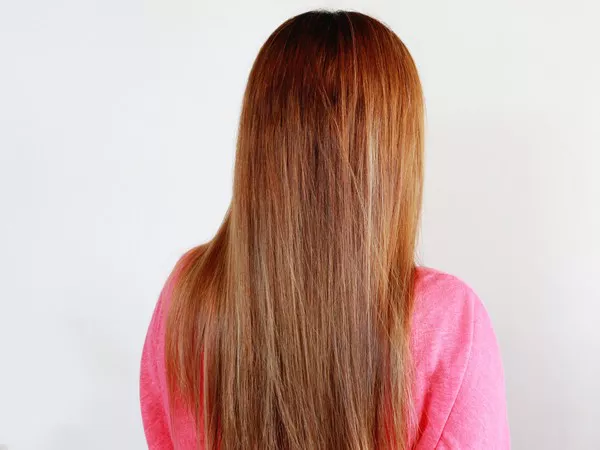A vegan diet, which excludes all animal products, has gained popularity in recent years due to its ethical, environmental, and health-related benefits. However, concerns have been raised about the potential impact of a vegan diet on hair health. In this article, we will explore the truth behind vegan hair loss and examine how a vegan diet can affect your hair.
The Role of Nutrition in Hair Health:
Proper nutrition plays a crucial role in maintaining healthy hair. Nutrients like protein, iron, zinc, vitamin D, omega-3 fatty acids, and vitamin B12 are essential for hair growth and strength. While animal products are commonly associated with these nutrients, it is entirely possible to obtain them from plant-based sources.
Protein and Hair Growth:
Protein is the building block of hair, and a deficiency in protein can potentially lead to hair loss. It is often assumed that plant-based diets lack sufficient protein, but this is a misconception. Vegan protein sources such as legumes, tofu, tempeh, quinoa, and nuts can provide an adequate amount of protein to support hair health.
Iron and Zinc Deficiencies:
Iron and zinc deficiencies have been associated with hair loss. Animal products like red meat are rich in these minerals, but plant-based sources like lentils, spinach, chickpeas, pumpkin seeds, and fortified cereals can also provide them. It is important for vegans to ensure they consume these foods regularly to meet their iron and zinc needs.
Vitamin D and Omega-3 Fatty Acids:
Vitamin D deficiency has been linked to hair loss, and since sunlight is the primary source of vitamin D, it may be a concern for individuals following a vegan lifestyle, especially those who live in regions with limited sunlight. Vegans should consider consuming vitamin D-fortified foods like plant-based milk or consider a vitamin D supplement. Additionally, omega-3 fatty acids, commonly found in fish, can be obtained from plant-based sources like flaxseeds, chia seeds, and walnuts, which are beneficial for hair health.
Vitamin B12:
Vitamin B12 is primarily found in animal products, and its deficiency can lead to fatigue, weakness, and even hair loss. Vegans must ensure they obtain vitamin B12 through fortified foods or supplements to prevent any potential deficiencies.
Balancing Macronutrients and Micronutrients:
A well-planned vegan diet that includes a variety of fruits, vegetables, whole grains, legumes, nuts, and seeds can provide all the necessary nutrients for healthy hair. It is important to focus on a balanced intake of macronutrients (carbohydrates, proteins, and fats) and micronutrients (vitamins and minerals) to support optimal hair health.
Potential Pitfalls:
While a vegan diet can provide all the necessary nutrients, it is essential to be mindful of potential pitfalls that could impact hair health. These include relying heavily on processed vegan foods, consuming excessive amounts of sugar, neglecting variety in the diet, and not meeting individual calorie needs. A well-rounded vegan diet should prioritize whole, nutrient-dense foods.
Hair Loss Factors Beyond Diet:
It is crucial to note that hair loss can be influenced by various factors beyond diet, such as genetics, hormonal changes, stress, medication, and underlying health conditions. Therefore, attributing hair loss solely to a vegan diet may oversimplify the issue. Consulting with a healthcare professional or a registered dietitian can help identify the root causes of hair loss and develop an appropriate treatment plan.
Conclusion:
A well-planned vegan diet can provide all the necessary nutrients for healthy hair growth and maintenance. By ensuring an adequate intake of protein, iron, zinc, vitamin D, omega-3 fatty acids, and vitamin B12 from plant-based sources, vegans can maintain optimal hair health. It is important to focus on a balanced diet that includes a variety of nutrient-dense foods to meet all nutritional needs.
While there are potential pitfalls in a vegan diet that may affect hair health, such as relying on processed foods or neglecting variety, these can be easily addressed by making informed food choices and prioritizing whole, plant-based foods.
However, it is crucial to recognize that hair loss can be influenced by factors beyond diet. Genetic predisposition, hormonal imbalances, stress, certain medications, and underlying health conditions can all contribute to hair loss. Therefore, it is important to take a holistic approach and consider all possible factors when experiencing hair loss.
If you are following a vegan diet and are concerned about hair loss, it is recommended to consult with a healthcare professional or a registered dietitian. They can evaluate your overall health, assess your diet, and provide personalized recommendations to address any nutritional deficiencies and promote hair health.
In conclusion, a well-planned vegan diet can support healthy hair growth and maintenance by providing all the necessary nutrients. By ensuring an adequate intake of protein, iron, zinc, vitamin D, omega-3 fatty acids, and vitamin B12 from plant-based sources, vegans can enjoy vibrant and strong hair. However, it is important to consider other factors that may contribute to hair loss and seek professional advice if needed. With proper care and attention to nutrition, vegans can have beautiful, healthy hair while enjoying the numerous benefits of a plant-based lifestyle.

